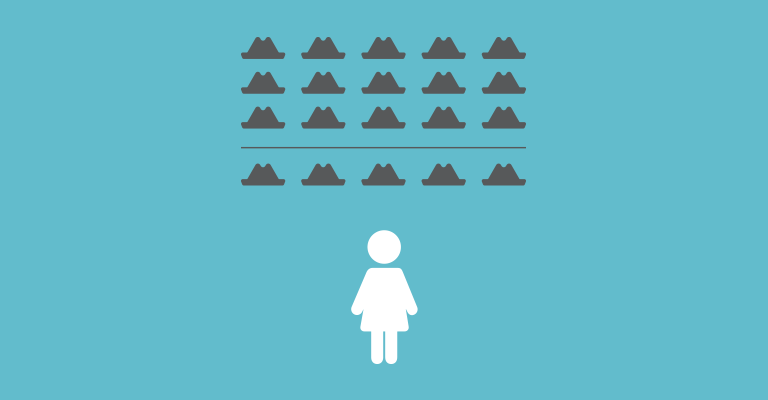
The average millennial will work 15-20 jobs
The world of work is changing fast, due to pressures from technology and globalization. Our parents' de facto "career" that we all imagine, with its pension and gold watch at the end, may have been realistic is past decades, but was really a historical anomaly. The reality is that young people today face a fluid economy that's constantly being disrupted and reshaped. Institutional stability is crumbling while fluidity takes its place.
As a result, career paths that are set in stone, and job skills that rely heavily on the acquisition of knowledge, are becoming irrelevant. Problem solving and creativity are becoming more important than they ever were. The traditional education system is sorely unequipped to prepare young people with these critical attributes.
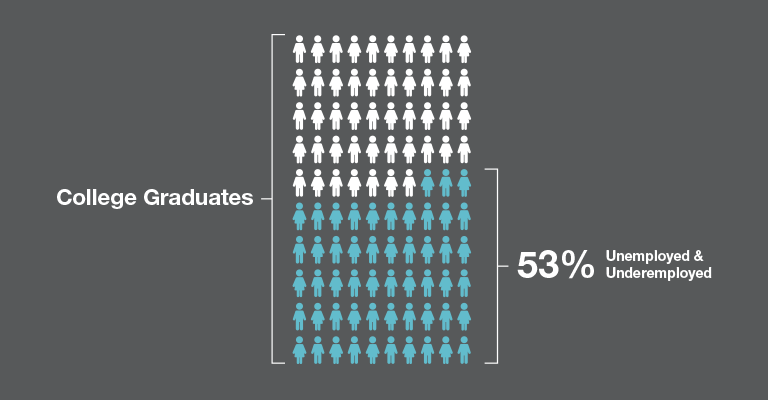
53% of graduates are un– or under–employed
For decades, heavy emphasis has been placed on the value of a university education. Alternative life paths are stigmatized and parents feel immense pressure to secure a college degree for their children, regardless of the cost. At the same time, traditional educational models have failed to prepare young people for the realities of today's economy and the result is a glut of underprepared college graduates with too few opportunities to go around. The waste is immense, as is the dearth of people expecting, willing, or even capable of working vocational jobs.
The point is that resources have been ridiculously misappropriated, education has been grossly mishandled, and young people suffer as a result.
A better education model will not only empower young people to chart a suitable course earlier in life, it will also prepare them to roll with the punches our changing economy are sure to be throwing.
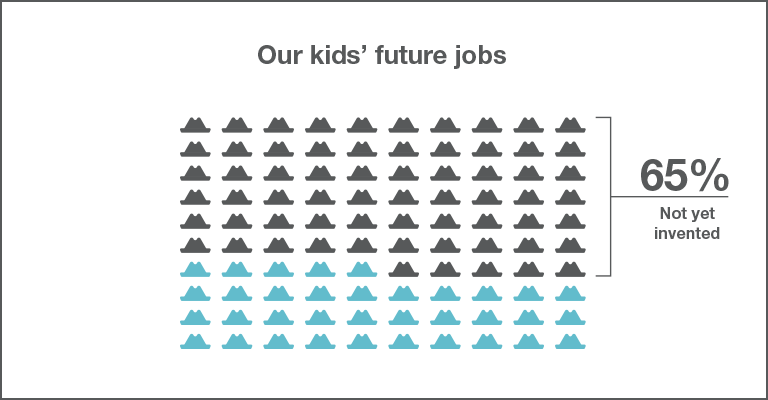
65% of our kids' jobs haven't yet been invented
The march of technology has always delegated work traditionally done by people to machines. But as this march accelerates, the invisible unknown becomes nearer. The world our children will inherit is less like that of their parents than any rising generation has ever experienced, as artificial intelligence promises to redefine the role of humans in our own lives. We have no way to give our children knowledge that they'll need in a world we can't predict.
The teaching of hard skills to young people makes very little sense; teaching them how to learn on their own is the only way to prepare them for what's coming.
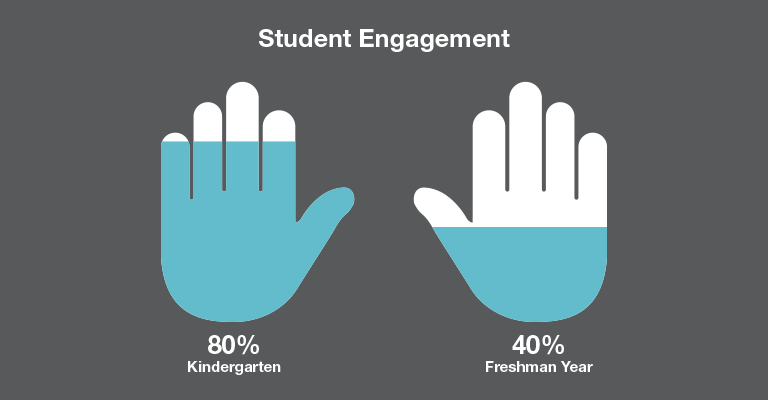
Student engagement drops drastically
Children are innately curious, and are highly engaged learners. But a rigid education system that's been outdated for over a hundred years overwhelmingly turns them off to learning. Many studies show that the longer a child stays in the traditional system, the less they care about it. This indicates that public schools are doing their job horribly wrong.
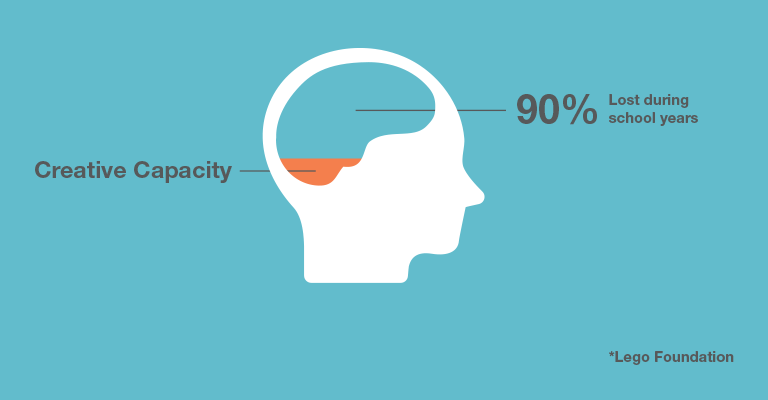
90% of creativity is lost in school years
The public school system rewards compliance and conformity, and discourages creativity. The longer children are forced to prepare for standardized tests by regurgitating information, the less able they are to formulate original ideas and solve unique problems. In addition, the joy of learning is lost on all but a narrow cross section of students, while their individual talents and interests atrophy.
A model that harnesses children's innate love of learning, liberates them to pursue their own interests, and teaches them discipline to govern themselves, will preserve, and even nurture, their creativity, preparing them for a more fulfilling future.
